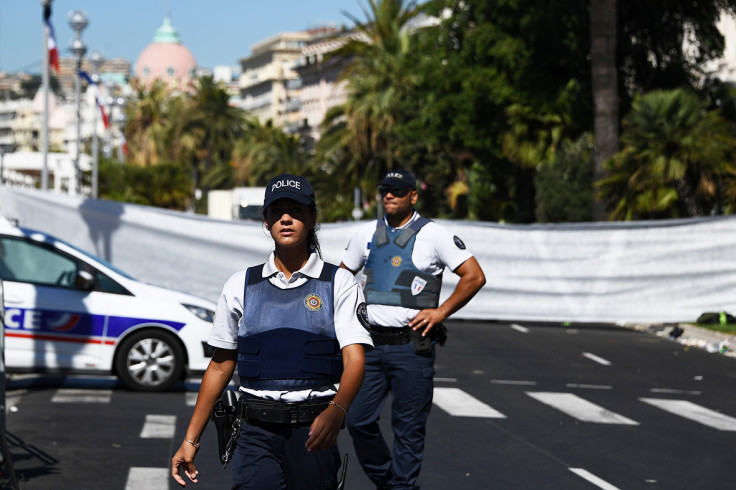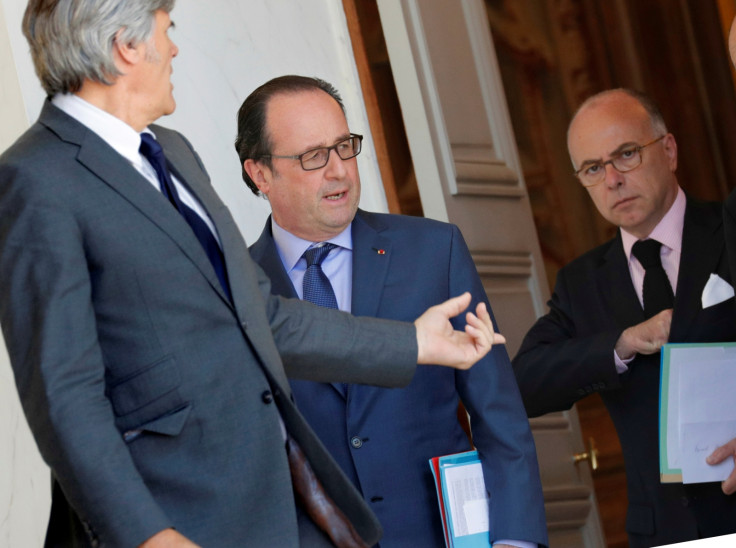Nice attack: French authorities accused of 'distorting the truth' about police presence
Media allege police presence was 'in reality much lighter' than the Interior Ministry claimed it was

Controversy surrounding the police presence in place on the night of the deadly Nice attack has been growing in France, as media and politicians alike have accused the minister of the interior of "distorting the truth".
On 14 July, Mohamed Lahouaiyej Bouhlel deliberately drove a 19-tonne lorry into a crowd of around 30,000 people who had gathered to celebrate Bastille Day on the Promenade des Anglais in the French southern city of Nice. Islamic State (Isis/Daesh) claimed responsibility for the attack that left 84 dead and hundreds of others injured.
In the hours after the attack, it emerged that Lahouaiyej Bouhlel had told police he was delivering ice cream and would be moving on soon when they asked why he was parked on the seafront – which was later closed to traffic – for nearly nine hours before he drove for more than a mile through crowds of revellers.
Police let him stay parked there, and failed to check his vehicle – in which he had guns and grenades. At about 10.45pm, the truck began its 1.2-mile journey, west to east, zigzagging through crowds.
At the time, Christian Estrosi, former mayor of Nice and current head of the regional council, had questioned the government's responsibility, saying: "I want to understand how the truck was able to enter the pedestrian area."
Interior minister accused of 'distorting the truth'
Interior Minister Bernard Cazeneuve on 16 July said: "The national police were present and very active on the Promenade des Anglais", adding that "police vehicles made it impossible to cross the Promenade des Anglais".
On 16 July, the Prefecture also detailed the security measures taken ahead of the event, saying no motorised vehicle could enter the pedestrian perimeter – entrance was banned and blocked by police vehicles. "The truck forced its way by driving up on the pavement," it said.
As local authorities and the state passed the buck to one another, Prime Minister Manuel Valls on 20 July told the National Assembly: "I will never let (people) say there are failures where they aren't any! I will never accept the shameful comments which imply that all of this could have been prevented, because saying that means discrediting our security forces that fight every day and achieve results."
However, on 20 July, Liberation newspaper accused the Interior Ministry of "distorting the truth". Citing "a police source viewed images of video surveillance", it claimed the police presence was "in reality much lighter".
"Contrary to what the minister said, the entrance to the pedestrian perimeter of the Promenade des Anglais was not protected by the national police," the newspaper said, adding that only two municipal officers wearing hi-vis jackets were present and one municipal police car parked.

'Light' police presence on Promenade des Anglais
According to witnesses, photographs and video surveillance, Liberation reported that, at the moment Lahouaiyej Bouhlel drove around the barrier and on to the Promenade des Anglais, national police was located 370m away.
Following the claims, Cazeneuve reacted violently to the newspaper's investigation. The minister was forced to publish a statement on Thursday (21 July) at 1am (midnight BST) in which he questioned the "ethics of journalists who have signed these articles" and denounced the methods used "because they suggest that the prefect of Alpes-Maritimes, the interior minister and the prime minister have sought to distort the truth".
However, he also admitted that that the police had set up a first barrier with one car, and that on a second barrier, "two police cars were parked on the roadway in the longitudinal direction [allowing access to pedestrians]".
Cazeneuve confirmed the allegations made by Liberation, saying that the first police car was only parked about 400m from the entrance of the pedestrian zone, but added that the prefect, the interior minister and the Prime Minister "had consistently affirmed" this.
"Would reinforced security have been able to changed things? Impossible to say," Liberation said.
© Copyright IBTimes 2025. All rights reserved.




















